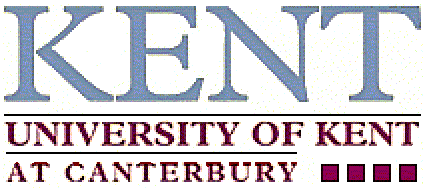|
|
||||

|
|

|

|
|
|
|
||||
|
|
||||

|
|

|

|
|
|
|
||||
| Contacts: | Professor Peter Welch (WoTUG Chair) |
| P.H.Welch@ukc.ac.uk
+44-1227-823629 |
|
| Stephen Maudsley (WoTUG Press Officer) Stephen.Maudsley@esgem.com +44-1453-521626, +44-370-810991 (mobile) |
|
| Jane Hardy / Posie Bogan (UKC Media and Communications Officers) J.E.Hardy@ukc.ac.uk P.H.Bogan@ukc.ac.uk +44-1227-823100 |
|
| WWW: | /parallel/groups/wotug/wotug21/press.html |
Last week's conference at the University of Kent organised by WoTUG was characterised by real, working solutions for the development of networked computer applications. Important themes for the conference included `reliable multithreaded Java systems', `commodity super-computing', `safe and fast language systems for modern microprocessor architectures and interconnect', `hardware design' and `rock solid mathematical foundation'.
Professor Peter Welch, the conference organiser and chairman of WoTUG, said:
The WoTUG community has been working hard to establish the theory and empirical knowledge about communicating systems. There is a real buzz now because we see our work coming forward to apply to mainstream computing in areas as diverse as web-hosted Java applications, specialist embedded systems (like multimedia and avionics), hardware design (reconfigurable FPGAs and ASICs), highly mobile -- in fact, wearable -- networked personal processors and supercomputing (such as the superdata gather/filter needs of the particle colliders at CERN in Geneva and the new Massively Parallel Media Processor at Bristol).
The Java aspects in the conference were especially timely ... given the recent warnings from Sun urging ``extreme caution'' in the use of multithreading (despite the natural attraction of threads for modelling the way the world works). With raw Java, that warning is right and proper. But a huge collaborative effort within WoTUG has yielded, and now supports, lightweight class libraries that make available to Java the CSP multiprocessing model of Tony Hoare and David May. Java active processes can now communicate and synchronise through CSP primitives, allowing 20 years of theory and associated tools to be deployed for the elimination of scheduling dependent race hazards, deadlock, livelock and process starvation. For the variety of platforms through which typical Java applications migrate, the thread-safe guarantees automatically provided by CSP design patterns have arrived `just in time'. Anyone can use them -- no knowledge of the underlying mathematics is required. That maths is built into the implementation of the libraries and the user automatically gets the benefit. These are significant developments.
Making its debut at the conference, a new model of CSP simplifies its semantics and extends its area of application to deal with priorities and real hardware. A powerful new technique for verifying the correctness of implementation against specification was also introduced. The problems of building efficient High Performance Computing engines out of commodity processors and interconnect are near to being sorted, which is crucial with so many of the specialist solutions no longer with us. The original CSP language, occam, was shown off on its shiny new platforms (SPARC, Pentium, Alpha, PowerPC, SHARC, ...), optimised and extended for SMP desktops and still retaining a level of security unmatched by traditional languages -- and with a multithreading context-switch time heading for the 100 nanosecond barrier. It all proved too much for some of us, with late night discussions running through to 5 in the morning ... and only a year to recover before the next one.
Peter Welch graduated in Mathematics from Warwick University in 1969, taking his Ph.D in Computer Science from the same institution in 1974. His doctoral research was on semantic models for the lambda-calculus, one of the key mathematical theories supporting functional programming. He has researched into a range of system design methods and tools for parallel processing, testing these against application areas such as real-time control, vision processing, networking and biological/physical system modelling. He led the UK-funded occam-for-all project, which has retargeted occam to a variety of modern parallel architectures and developed the language to support (virtual) shared memory multiprocessors whilst retaining its simplicity, security and efficiency. He is now researching into the relationships between objects and communicating processes and is actively collaborating with all the groups looking at how this impacts on Java. He was appointed Professor of Parallel Computing at the University of Kent (England) in 1989 and is currently Chairman of WoTUG.
WoTUG is an informal association established 14 years ago to encourage scientific and technological discussion of the theory, practice and application of distributed and parallel computation. Included in its field of interest are all aspects of hardware and software development designed for use in parallel computation and communication, with special emphasis on those derived from and furthering the understanding of communicating processes. As such it has proved to be interdisciplinary in character, representing a broad range of activities in industry, research laboratories and educational establishments.
WoTUG-21 was the 21st. international conference organised by its European branch. Information about the conference, including synopses of the papers and tutorials presented can be found at:
United Kingdom Tuesday, April 14, 1998